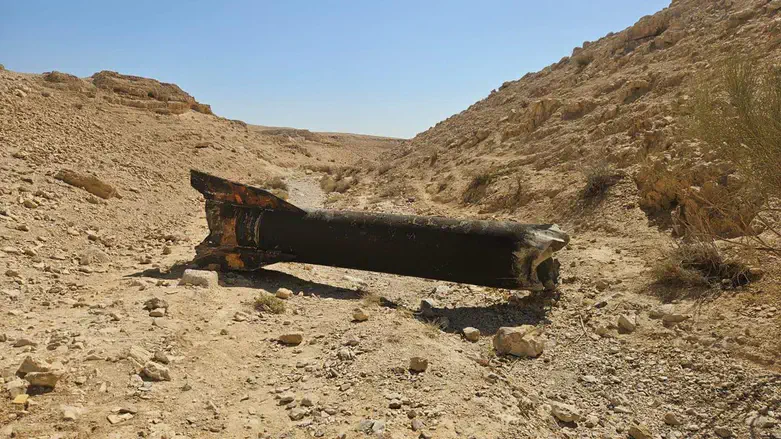
American officials believe Israel has narrowed down the list of targets it will strike in retaliation for Iran's massive ballistic missile attack two weeks ago and will not strike any of Iran's nuclear facilities, NBC News reported.
According to the report, Israel is planning to strike Iranian military and energy infrastructure sites. However, a final decision on which sites to strike has not yet been made.
On October 1, Iran launched 181 ballistic missiles at Israel in the largest ballistic missile attack in history. The vast majority of the missiles were intercepted, though the attack sent millions of Israelis into bomb shelters.
US President Joe Biden has stated or hinted at his opposition to Israel striking Iran's nuclear facilities or fields. The day after Iran's attack, Biden stated, “The answer is no," in response to a reporter's question about whether he would support an Israeli strike on Iran's nuclear sites. He added that while Israel has the right to respond to the attack, it should do so “proportionally” without elaborating on what that means.
At another press briefing, Biden stated, "If I were in their shoes, I'd be thinking about other alternatives than striking oilfields."
Sources have told CNN that Tehran is "extremely nervous and has been engaging in urgent diplomatic efforts with countries in the Middle East" to determine whether it is possible to either reduce the scope of Israel's response, or to garner aid in protecting Tehran.
The source added that Iran is very concerned about Israel's relation due to the "uncertainty about whether the US can convince Israel not to strike Iranian nuclear sites and oil facilities," as well as from the blows that Hezbollah, Iran's most powerful proxy in the Middle East, has sustained in Israel's operation in southern Lebanon.
